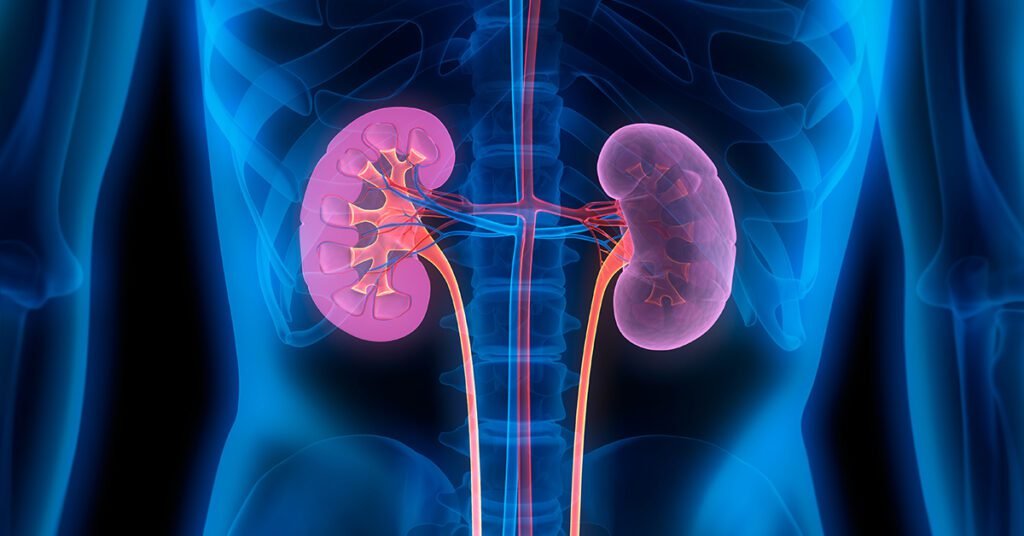How the Kidneys Work Explained
How the Kidneys Work Explained
Introduction: The kidneys are vital organs responsible for maintaining fluid balance, filtering waste products, and regulating essential substances in the body. Understanding how the kidneys work is crucial for comprehending renal health and the importance of maintaining proper kidney function. This article provides a comprehensive guide to understanding the kidneys, their structure, functions, and the process of urine formation.

- Anatomy of the Kidneys:
- Structure of the urinary system: kidneys, ureters, bladder, and urethra
- Nephrons: functional units of the kidneys responsible for filtration and urine formation
- Renal artery and renal vein: blood vessels supplying and draining the kidneys
- Renal pelvis and ureteric system: transport of urine from the kidneys to the bladder
- Filtration and Urine Formation:
- Glomerular filtration: the first step in urine formation at the glomerulus
- Reabsorption and secretion: processes occurring in the renal tubules to regulate the composition of urine
- Renal corpuscle, proximal tubule, loop of Henle, distal tubule, and collecting ducts: segments of the nephron and their roles
- Hormonal regulation of water and electrolyte balance in the kidneys
- Waste Product Excretion:
- Removal of metabolic waste products, such as urea, creatinine, and uric acid
- Role of the kidneys in maintaining acid-base balance and excreting excess acids or bases
- Clearance tests: measuring renal function by assessing the rate at which substances are cleared from the blood
- Importance of adequate hydration for proper waste product excretion
- Fluid and Electrolyte Regulation:
- Osmoregulation: maintaining the balance of water and electrolytes in the body
- Role of antidiuretic hormone (ADH) and aldosterone in regulating water reabsorption and sodium balance
- Renin-angiotensin-aldosterone system (RAAS): regulating blood pressure and fluid balance
- Kidneys’ contribution to the regulation of potassium, calcium, and phosphate levels in the body
- Kidney Health and Disorders:
- Chronic kidney disease (CKD): progressive loss of kidney function and its stages
- Acute kidney injury (AKI): sudden loss of kidney function due to injury or illness
- Kidney stones: formation and factors contributing to stone formation
- Urinary tract infections (UTIs) and other common kidney-related infections
- Kidney Transplantation and Dialysis:
- Kidney transplantation: replacing a failed kidney with a healthy donor kidney
- Hemodialysis: artificial blood filtration to remove waste products and excess fluid from the blood
- Peritoneal dialysis: using the peritoneum as a filter to remove waste products and excess fluid
- Challenges and considerations in kidney transplantation and dialysis
- Maintaining Kidney Health:
- Importance of maintaining a balanced diet and controlling blood pressure and blood sugar levels
- Regular exercise and its benefits for overall kidney health
- Avoidance of smoking and excessive alcohol consumption
- Regular monitoring and screening for early detection of kidney diseases
- Research and Advancements:
- Ongoing research in the field of nephrology and kidney health
- Advancements in kidney disease diagnosis, treatment, and management
- Potential future developments, such as tissue engineering and regenerative medicine for kidney repair
- Importance of raising awareness and supporting kidney health initiatives
Conclusion: The kidneys play a crucial role in maintaining homeostasis and overall health. Understanding how the kidneys work and the factors that affect their function empowers individuals to make informed choices for kidney health. By adopting a healthy lifestyle, managing risk factors, and seeking appropriate medical care, we can promote optimal kidney function and ensure long-term renal well-being.

